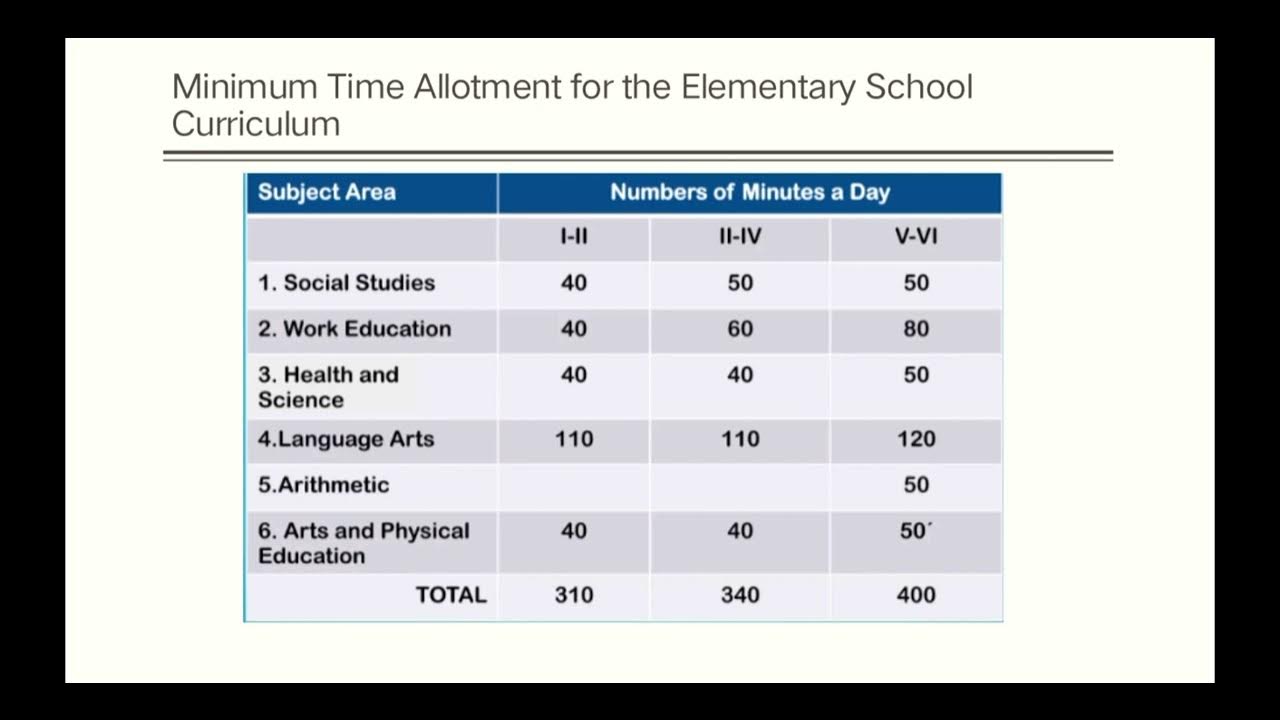LEGAL FRAMEWORK FOR THE INSTITUTIONALIZATION OF PEACE EDUCATION IN BASIC EDUCATION
Summary
TLDRThe video by Karen Gina Bran explores the legal framework for institutionalizing peace education in basic education in the Philippines. It defines peace education as transformative learning that fosters non-violence, social justice, human rights, and environmental care. The session highlights key legal instruments, including the 1996 GRP-MNLF peace agreement and Executive Orders 3 and 570, emphasizing their role in mainstreaming peace education across formal and non-formal curricula. The discussion covers objectives, principles, components, and implementing guidelines, as well as monitoring, evaluation, and funding mechanisms. Core themes include human dignity, non-violence, tolerance, gender equity, economic justice, and environmental stewardship, aiming to cultivate a culture of peace.
Takeaways
- 😀 Peace education is transformative education that aims to change mindsets, values, and behaviors to reduce violence and promote non-violence, justice, and environmental care.
- 😀 It focuses on acquiring values, knowledge, attitudes, skills, and behaviors for harmonious living with oneself, others, and the environment.
- 😀 The 1996 Final Peace Agreement between the Philippine government and the MNLF ended decades-long conflict in Mindanao and promoted socio-economic development through the Zone of Peace and Development (ZOFIDE).
- 😀 Executive Order No. 3 (2001) established a comprehensive peace process including peace education as one of the six key paths to peace.
- 😀 Executive Order No. 570 (2006) institutionalized peace education in basic and teacher education and authorized DepEd to mainstream it into curricula and train personnel.
- 😀 Peace education emphasizes key values and principles including human rights, non-violence, social justice, interfaith and intercultural solidarity, oneness with nature, and human security.
- 😀 Implementation involves partnerships among government agencies (DepEd, CHED, OPAPP), civil society organizations, NGOs, and local government units to ensure sustained and effective peace education programs.
- 😀 Peace education themes include oneness of the human family, human worth and dignity, non-violence, tolerance, economic equity, environmental care, and gender equity.
- 😀 Monitoring and evaluation are critical, including quarterly monitoring, impact evaluation, and specific evaluation by DepEd (elementary/ALS) and CHED (high school) to assess effectiveness.
- 😀 A culture of peace is built through shared values, attitudes, behaviors, and ways of life that foster non-violence, respect for human rights, intercultural understanding, tolerance, solidarity, participation, and empowerment.
Q & A
What is the main topic of the session in the video script?
-The main topic of the session is the legal framework for the institutionalization of peace education in basic education.
How does the script define peace education?
-Peace education is defined as transformative education that seeks to change mindsets, values, and behaviors that have led to violence in society. It builds awareness and action towards non-violence, justice, and environmental care.
What is the significance of the 1996 final peace agreement between the GRP and MNLF?
-The 1996 final peace agreement aims to end decades of conflict in Mindanao, promoting socio-economic development and peace, particularly in the region of the Zone of Peace and Development (ZOPD).
What is the purpose of Executive Order No. 3 series of 2001?
-Executive Order No. 3 defines the policy and administrative structure for the government’s comprehensive peace efforts and includes building a climate conducive to peace through peace education and advocacy programs.
What does Executive Order No. 570 (2006) authorize the Department of Education to do?
-Executive Order No. 570 authorizes the Department of Education (DepEd) to mainstream peace education into basic education by utilizing existing modules and training teachers and personnel to enhance their capabilities in peace education.
What is the role of civil society organizations (CSOs) in the implementation of peace education?
-Civil society organizations and other stakeholders are expected to provide support as resource persons, consultants, and mobilize actions to actualize the objectives of Executive Order No. 570.
How does the script explain the concept of 'transformative education'?
-Transformative education refers to education that seeks to change mindsets, values, and behaviors to promote non-violence, justice, and environmental care, ultimately fostering a culture of peace.
What are the key values emphasized in peace education as outlined in the script?
-The key values emphasized in peace education are human rights, non-violence, social justice, intercultural solidarity, environmental care, and human security.
Why is peace education considered an ethical imperative?
-Peace education is seen as an ethical imperative because it upholds core ethical principles like human dignity, the right to life, and the importance of rejecting war, violence, and human suffering.
What are some of the peace education themes that need to be addressed, according to the script?
-The themes include the oneness of the human family, human worth and dignity, non-violence, tolerance, economic equity, environmental care, and gender equity.
What is the concept of 'culture of peace' as defined in the script?
-The culture of peace consists of values, attitudes, behaviors, and ways of life based on non-violence, respect for human rights, intercultural understanding, tolerance, solidarity, and empowerment of all people.
Outlines

Этот раздел доступен только подписчикам платных тарифов. Пожалуйста, перейдите на платный тариф для доступа.
Перейти на платный тарифMindmap

Этот раздел доступен только подписчикам платных тарифов. Пожалуйста, перейдите на платный тариф для доступа.
Перейти на платный тарифKeywords

Этот раздел доступен только подписчикам платных тарифов. Пожалуйста, перейдите на платный тариф для доступа.
Перейти на платный тарифHighlights

Этот раздел доступен только подписчикам платных тарифов. Пожалуйста, перейдите на платный тариф для доступа.
Перейти на платный тарифTranscripts

Этот раздел доступен только подписчикам платных тарифов. Пожалуйста, перейдите на платный тариф для доступа.
Перейти на платный тарифПосмотреть больше похожих видео

what is Peace Education|| Concept and meaning of peace education| need of peace Education

Pendidikan Kewarganegaraan Suatu Pengantar | Part 1

Isu-isu pendidikan inklusi di Indonesia

OVERVIEW TO THE MATATAG CURRICULUM

A SHORT FILM - LACK OF EDUCATION

Journey towards basic education curricular reform : 1946-2011
5.0 / 5 (0 votes)
